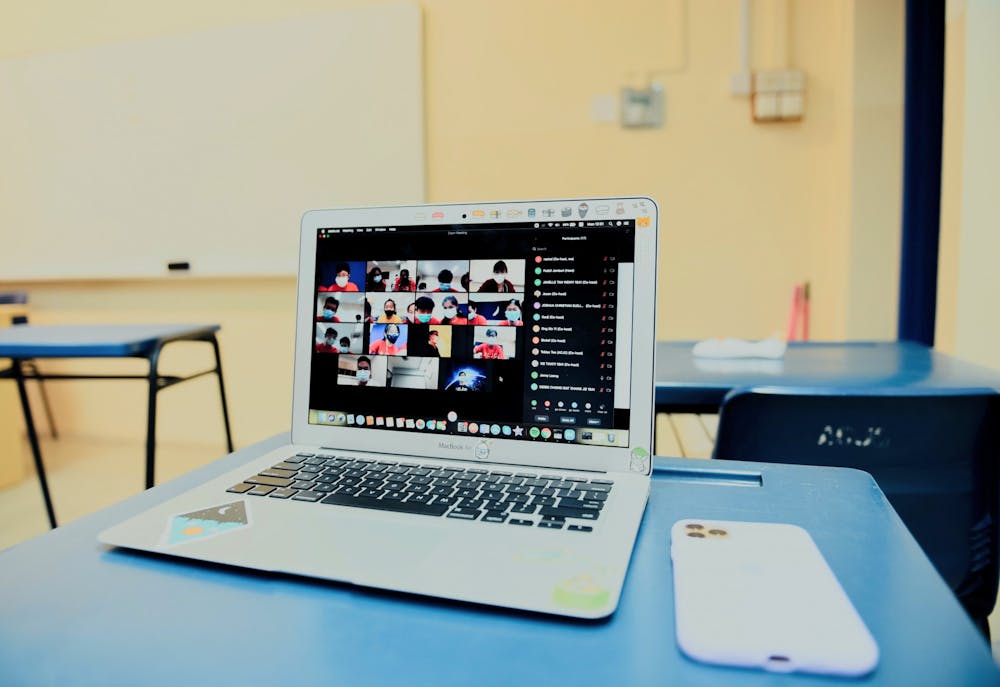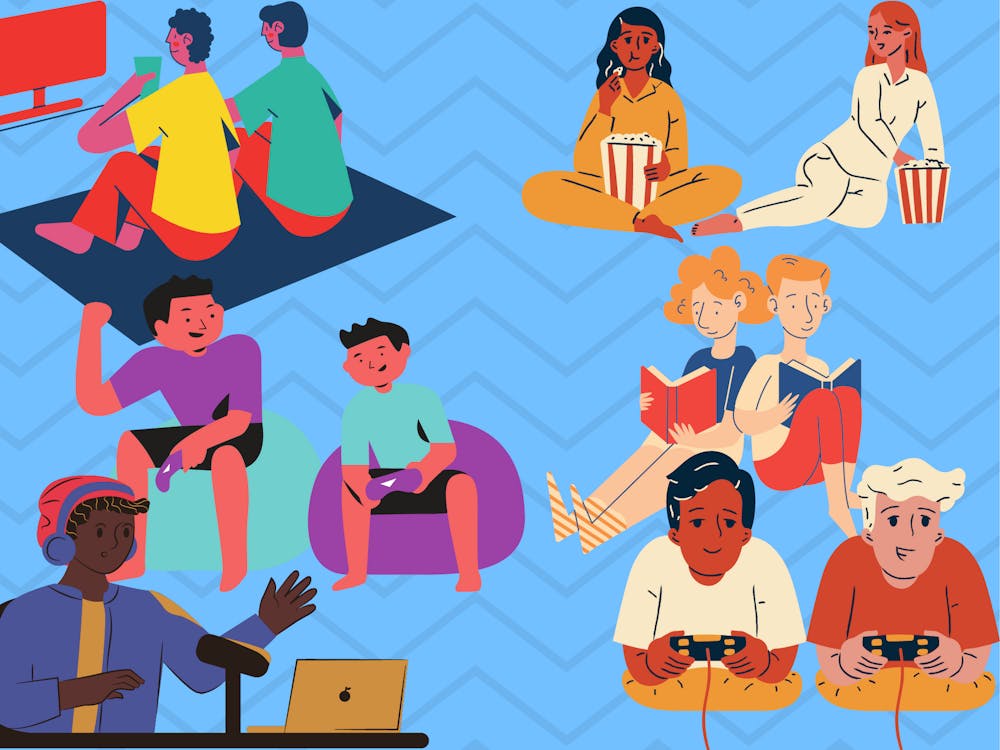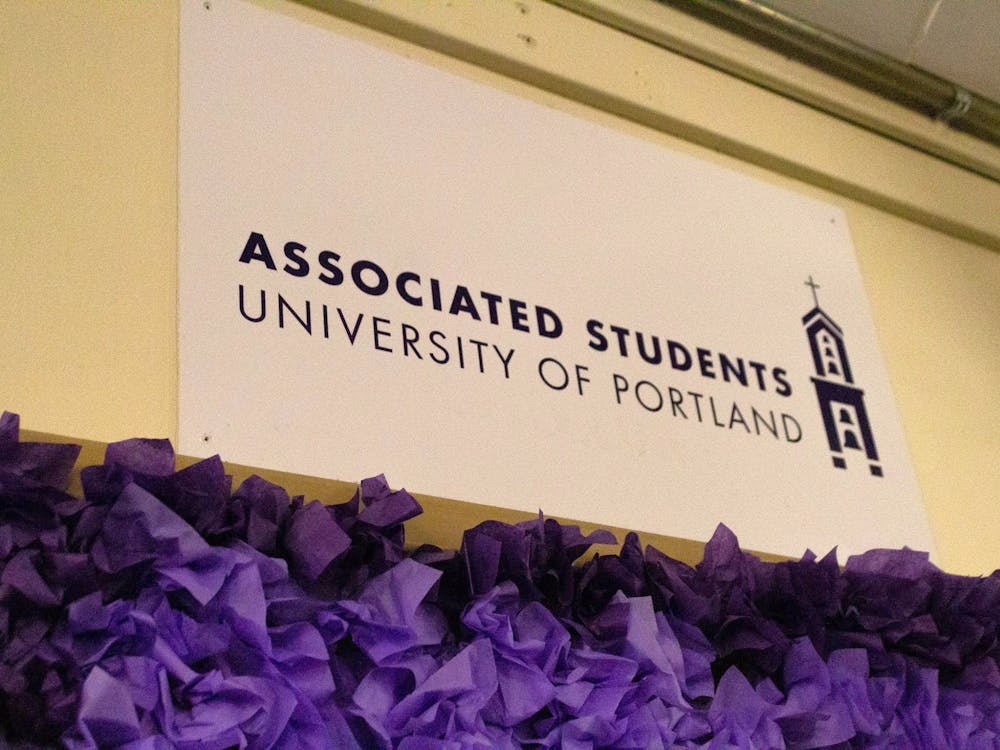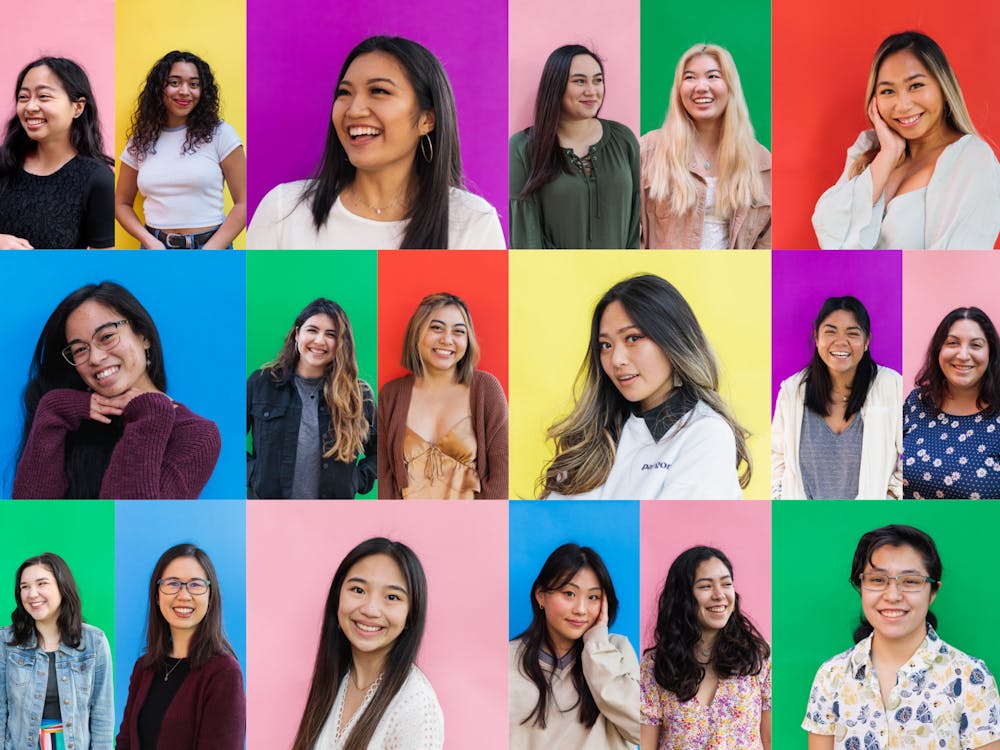Many upper-division elementary education majors are now receiving the COVID-19 vaccine, as they look to move to in-person student teaching in the coming months. As part of the Oregon vaccine rollout, Gov. Kate Brown designated student-teachers as status 1b, meaning they were next in line behind health care workers.

A graphic shows details regarding COVID-19 vaccination priority.
Courtesy of Oregon Health Authority.
Brown announced last month that she would like to have most schools reopened by the end of April. Now, despite the difficulties of online student-teaching, UP ed majors look ahead to what it would mean to get back into the classroom.
“I'm really hoping that I can get some more experience with being with kids in the classroom,” Chloe Mar, a senior elementary education major, said. “Even though I've had that in previous years, this would be me taking more of a teacher role in the classroom, which would be a different role than what I've had before.”
In their first three years, education majors are placed in schools close to UP's campus as part of their field experience. They observe everyday activities and life in the classroom.
“It's kind of dipping a toe into what schools actually look like,” Director of Student Placements for the School of Education Joan Flora said.
All of this is in preparation for these students’ senior year student-teaching placements. In this role, they have the opportunity to teach lessons and to run their own classroom, taking on more responsibility than in previous years. However, with COVID-19 still running rampant, many seniors have yet to step into a classroom this year. Only the lucky few who were placed in schools across the Columbia in Washington have been able to come face-to-face with their students due to different COVID-19 restrictions. Even then, they are only in the classroom part-time.
“I feel like I can't connect with [students] or help them as much as I could, versus like if I was in a classroom,” Brienne Tajima, a senior elementary education major, said. “There's a huge problem with equity too because not all of my students come from the greatest backgrounds and have access to technology, or a secure WiFi connection. I think that's the biggest challenge; making sure that I can support all students equally.”
One leg up that student teachers did have, however, was their experience with online platforms such as Zoom, Google Meet and Blackboard.
“In many, many cases our candidates knew more about the platforms than the students or their cooperating teachers, so that made them such a huge asset to a school district almost immediately,” Flora said.
Now, students are looking ahead at what being vaccinated may mean for them re-entering the classroom. Mar has already been fully vaccinated, while Tajima had to fly in from her home in Las Vegas to get her first dose and will return in a few weeks to get her second.
“I would be one of the people working with kids, and I feel very lucky that I've been able to be vaccinated, especially since I live with some other people and it lessens my worry about passing it on to them when I come home,” Mar said.
Being back in the classroom would cause some worry about COVID-19, but there seems to be a sense of urgency amongst educators to get their students back in the classroom, so their education doesn’t suffer.
“I feel [online school] is especially hard for students who need more assistance, like in special education,” Tajima said.
Despite the increasing possibility that seniors will get to do their student-teaching in person, some still have nerves about the future of their teaching ability due to the year of missed classroom time.
“I feel underprepared honestly, to be an actual teacher in the classroom,” Tajima said. “My Google Meet call is only three hours, versus a typical school day in a classroom where the subjects would be a lot longer and I would have more time with students.”
However, Flora doesn’t seem worried about this graduating class.
“When they do transition to in-person, I'm not worried about them,” Flora said. “We're bursting with pride for them as they are now entering this job market. People are excited to know who they are and what they can offer, so I'm super proud.”
Mia Werner is a reporter for The Beacon. She can be reached at wernermi22@up.edu.








